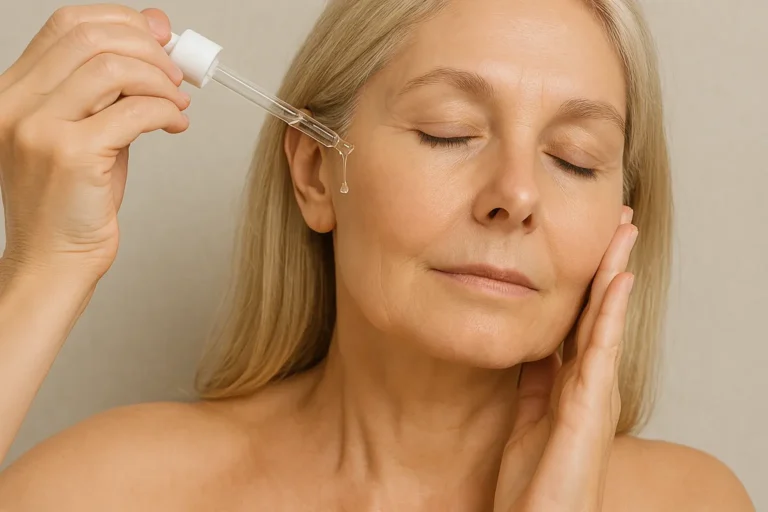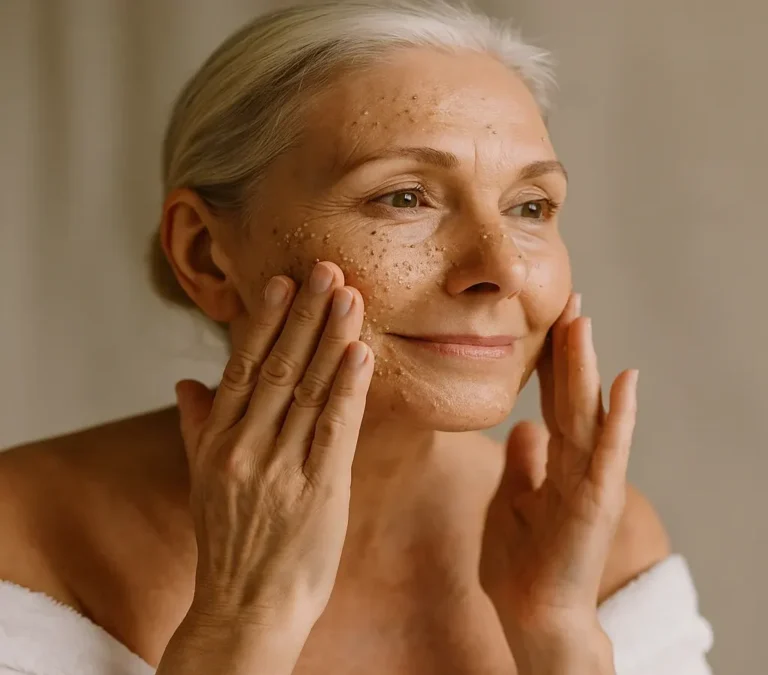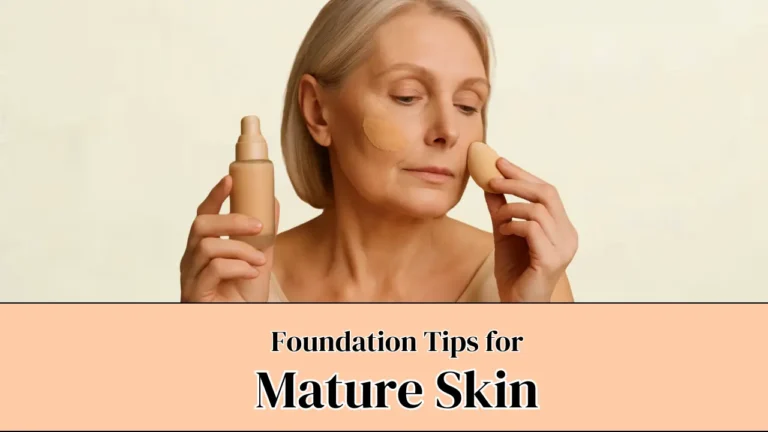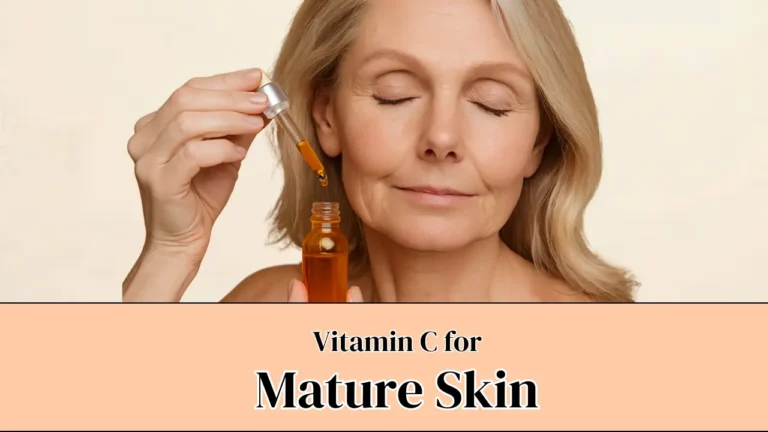11+ Super Tips on How to Hydrate Mature Skin by Nutrition
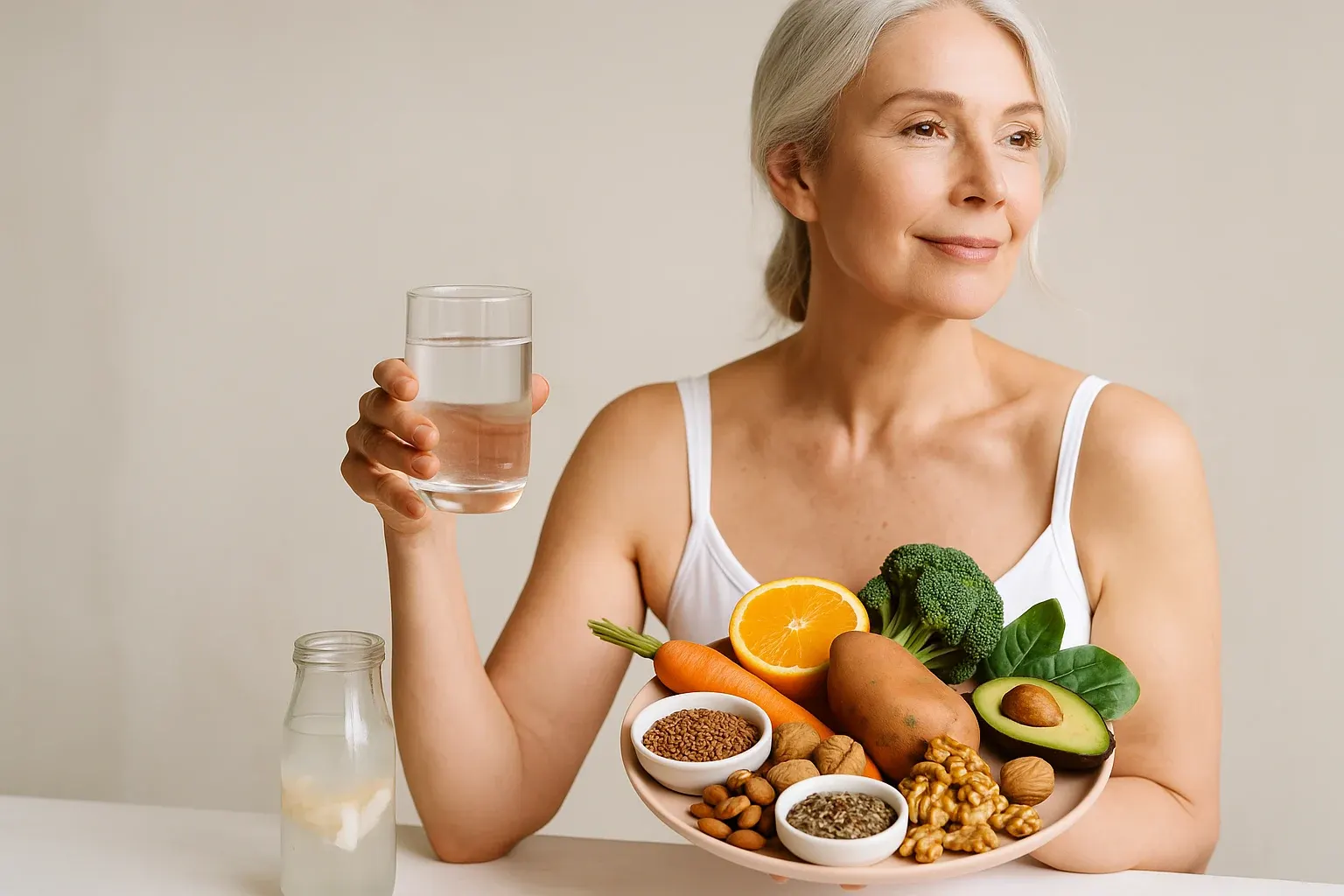
Nourish your skin from the inside out—one delicious bite at a time!
As we get older, it’s not uncommon for our skin to feel dry and look a bit dull—but it doesn’t have to be that way. You might already be using a fantastic moisturizer, a hydrating foundation, or even a serum packed with hyaluronic acid. Those are all great choices! But here’s a powerful secret that many women tend to overlook: the real key to keeping your skin hydrated for the long haul starts with your diet.
In this guide, you’ll discover how to naturally hydrate mature skin through the foods you eat—using nutrition to boost moisture, enhance elasticity, and achieve that radiant, healthy glow from the inside out.
Why Mature Skin Gets Dehydrated: A Scientific Breakdown
As we get older, our skin goes through a variety of changes that can lead to increased dryness and dehydration. By understanding these changes, we can adopt better strategies to keep our skin hydrated.
Decreased Natural Oil Production
Our sebaceous glands produce sebum, an oily substance that helps lock in moisture. However, as we age, these glands tend to slow down, resulting in less sebum being produced. This decline weakens the skin’s natural barrier, making it more vulnerable to losing moisture and becoming dry.
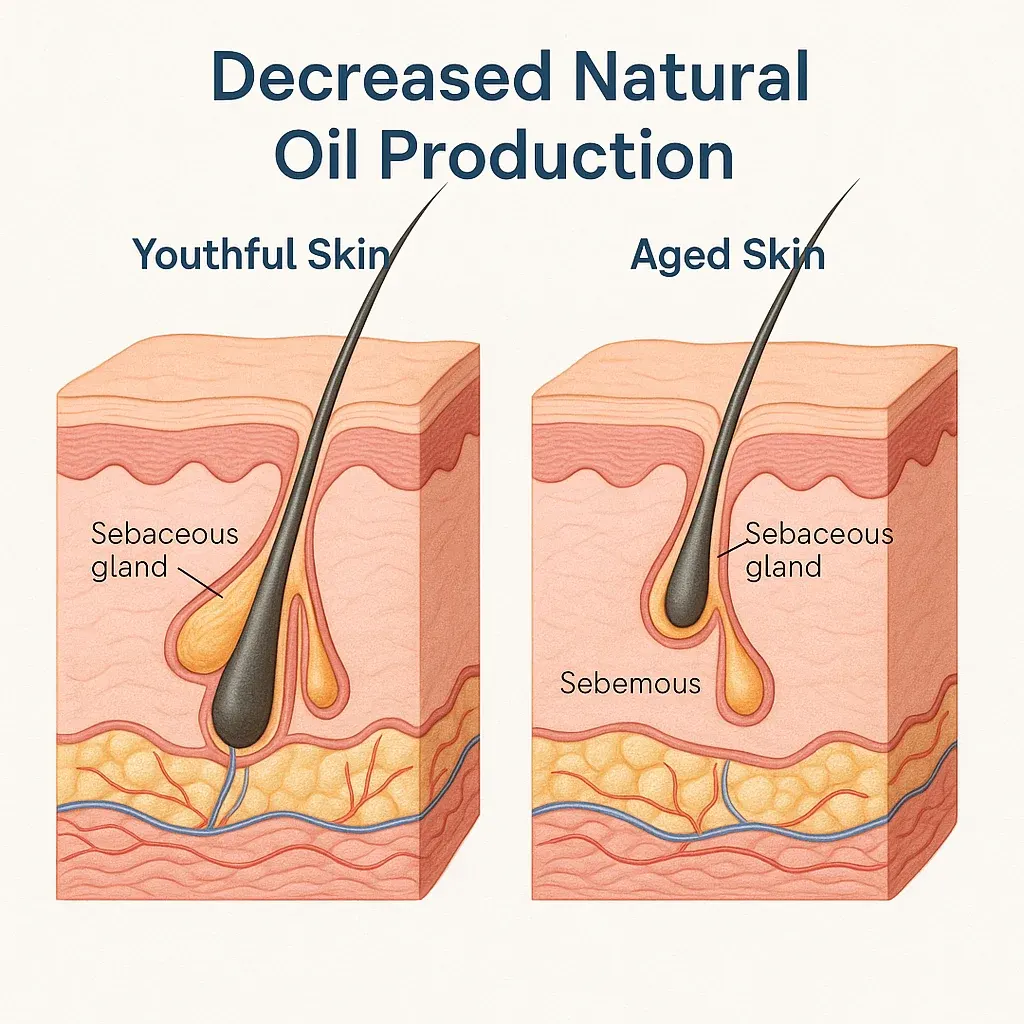
Slower Cell Turnover
Over time, our skin’s ability to regenerate and shed dead cells slows down. This reduced cell turnover can cause a buildup of dead skin cells on the surface, which can hinder the absorption of moisturizers and other hydrating products, leaving the skin looking dull and dry.
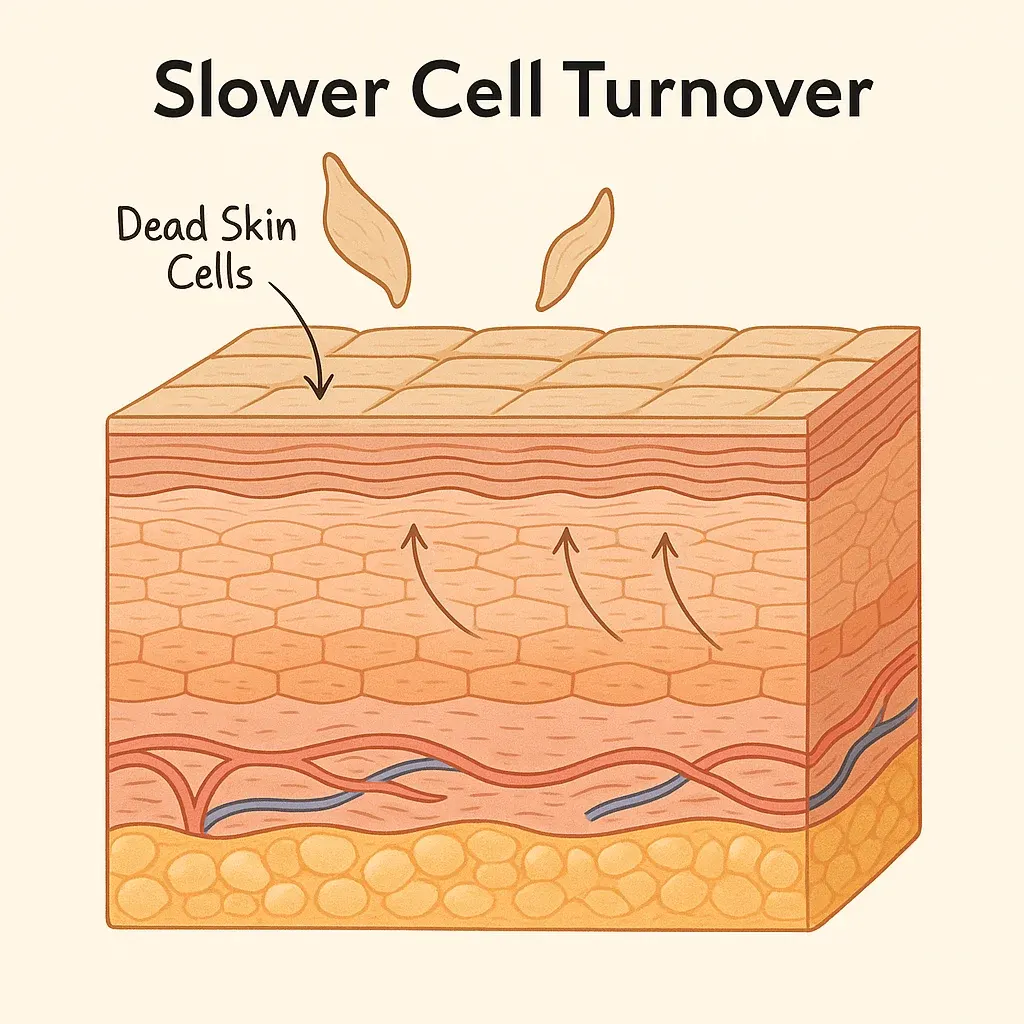
Reduction in Collagen and Elastin
Collagen and elastin are the proteins that give our skin its strength and elasticity. As we age, our bodies produce less of these proteins, resulting in thinner skin that’s more susceptible to dehydration. With less structural support, the skin also becomes less resilient against environmental stressors.
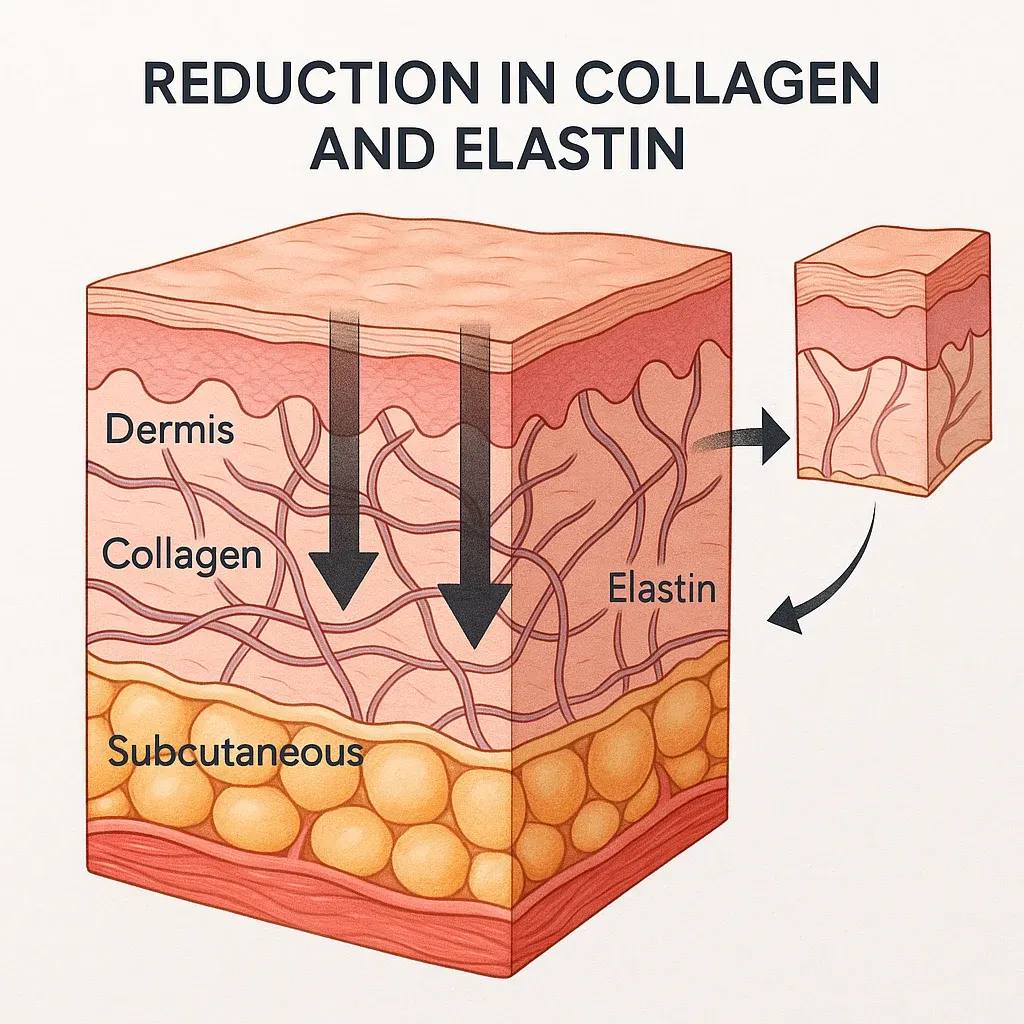
Hormonal Changes (Especially Post-Menopause)
Hormonal shifts, particularly the drop in estrogen levels during menopause, have a significant effect on skin hydration. Estrogen is vital for maintaining skin thickness and moisture. When its levels decrease, collagen production and oil secretion also drop, leading to drier and more fragile skin.
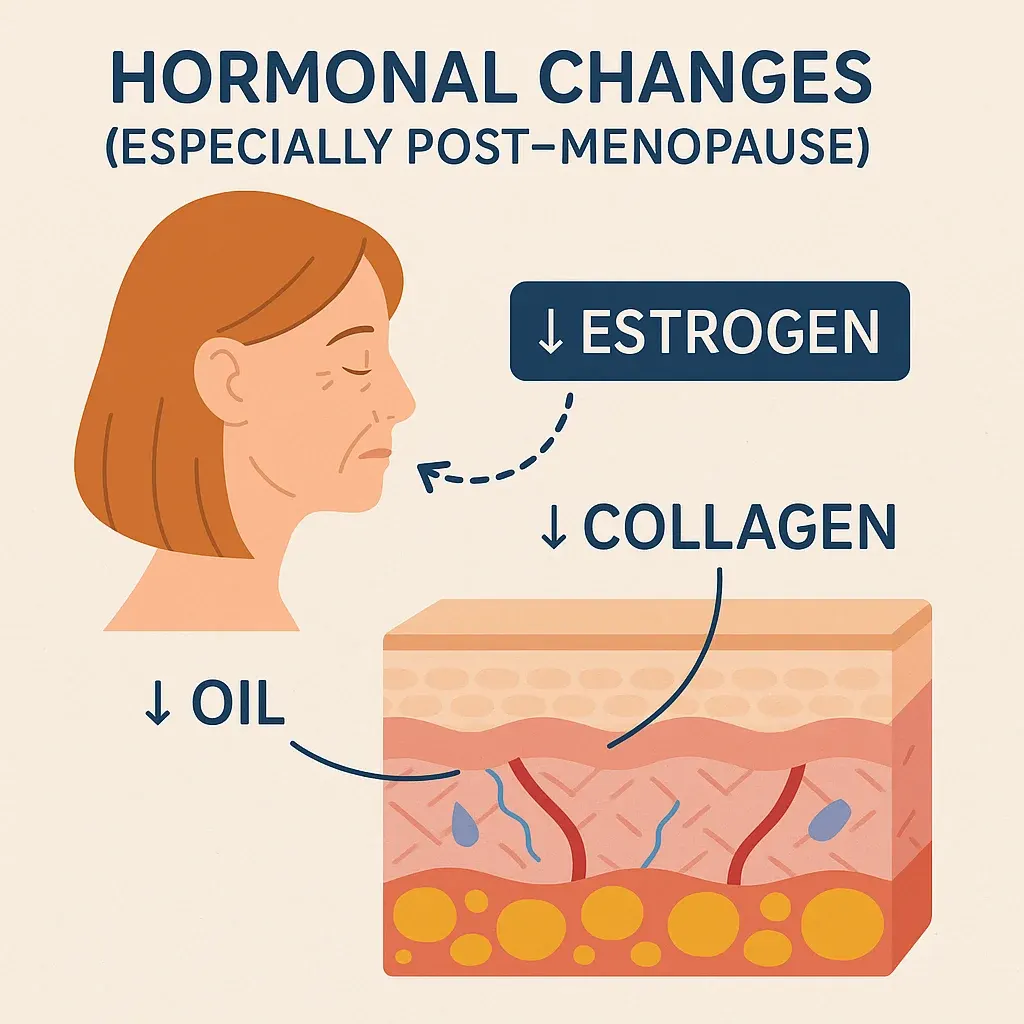
Increased Transepidermal Water Loss (TEWL)
Aging skin often has a compromised barrier function, which can lead to increased transepidermal water loss. This is the process where water moves from the dermis through the epidermis and evaporates from the skin’s surface. This increased water loss is a major contributor to skin dehydration.
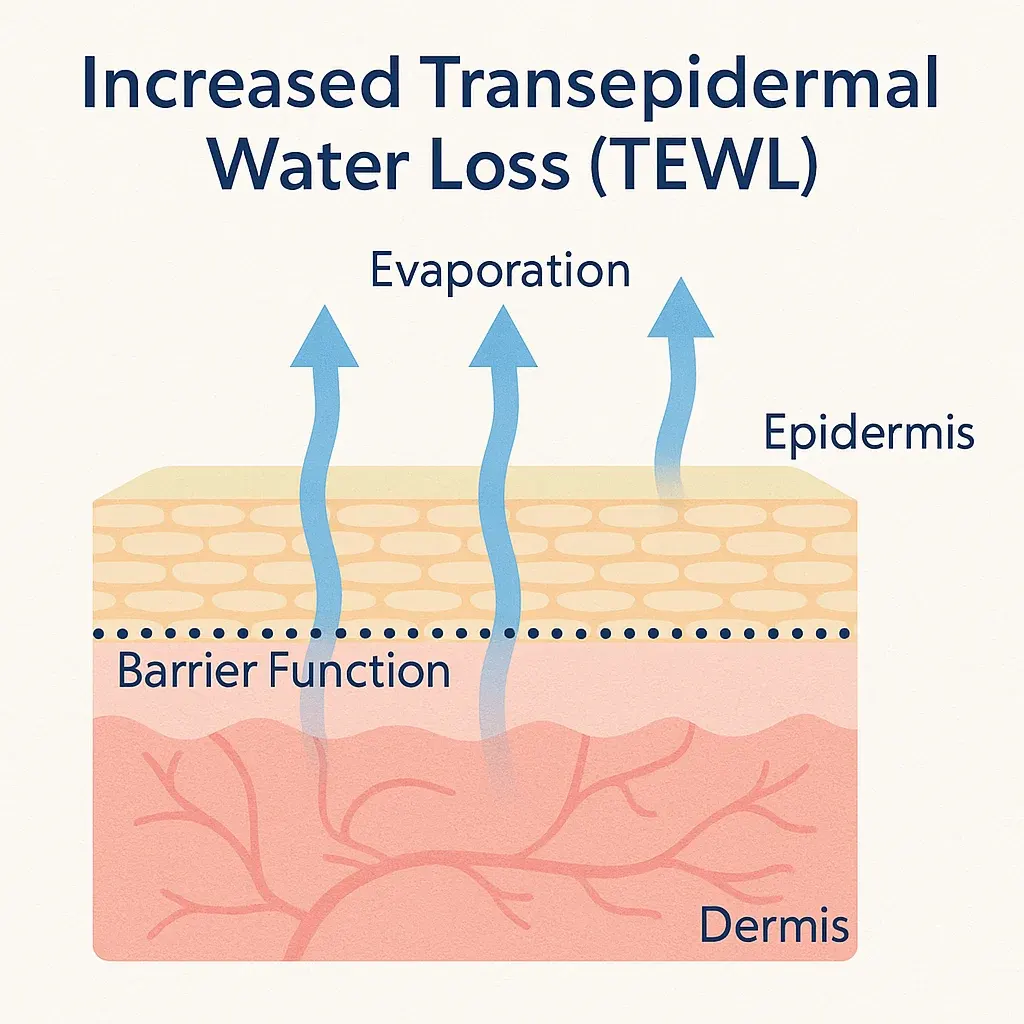
By understanding these natural changes, we can adjust our skincare and nutrition routines to fight dehydration, focusing on both external and internal factors.
How to Hydrate Mature Skin Through Nutrition
Here are some fantastic nutrients and food-based strategies that work wonders for women in their 40s, 50s, and beyond:
When it comes to keeping mature skin hydrated, one of the best and most sustainable approaches is through the foods you enjoy every day. Unlike topical products that only address the surface, good nutrition nourishes your skin from the inside out, providing support to every layer—from the dermis to the epidermis—with the essential building blocks it needs to remain soft, supple, and resilient.
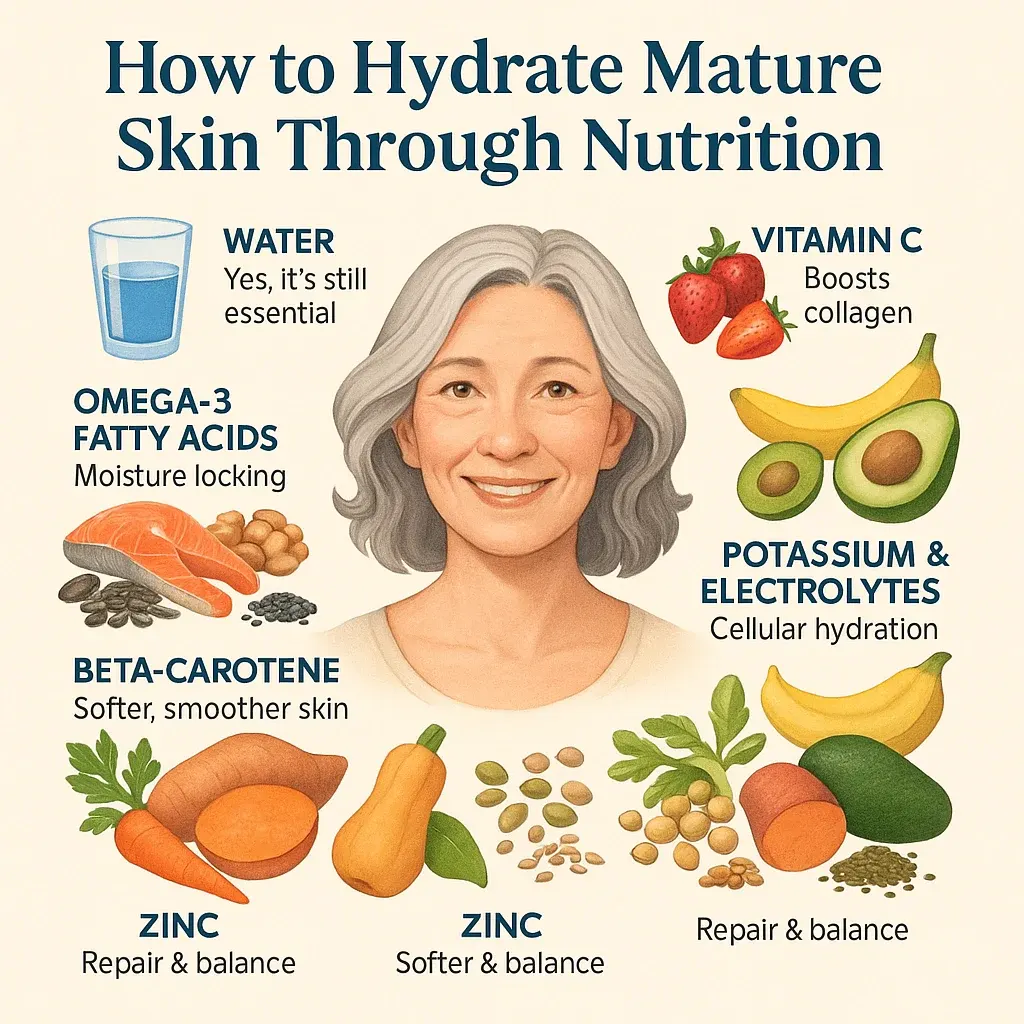
As our skin matures, we require specific nutrients that help retain moisture, repair the skin barrier, and boost collagen production. Below are the key components your diet should feature if you’re aiming to enhance hydration in a natural and visible way:
1. Water — Yes, It’s Still Essential
If you’re on a quest to keep your mature skin well-hydrated, the first thing you should look at is how much water you’re drinking. It may seem like a no-brainer, but many women over 40 aren’t getting enough H₂O. When your body is running low on hydration, your skin is usually the first to show it.
As we age, our skin naturally struggles to retain moisture. That’s why it’s crucial to stay hydrated from the inside out. Even the most luxurious moisturizer can’t compensate for what your body is missing internally.
Aim for at least 8 to 10 glasses of water each day. And remember, it doesn’t have to be just plain water—herbal teas and fruit-infused waters are great options too. If sipping plain water isn’t your thing, try jazzing it up with some lemon, cucumber, or mint to make it more appealing.
Here’s a simple tip that really works: start your day with a full glass of water. Do this before your coffee or anything else. It helps rehydrate your body after a long night’s sleep and gives your skin a fresh, healthy boost to kick off the day.
2. Omega-3 Fatty Acids
One reason your skin might be feeling particularly dry or tight is that your protective barrier isn’t as robust as it once was. That outer layer is essential for locking in moisture, and Omega-3 fatty acids play a crucial role in strengthening it.
These healthy fats are vital for keeping that barrier intact and preventing moisture loss from deep within your skin. They also help to calm inflammation, which means you’ll experience less redness, flakiness, and irritation.
You can find Omega-3s in delicious foods like salmon, walnuts, chia seeds, and flaxseeds. Just a few servings each week can truly make a difference. Try adding chia seeds to your breakfast or drizzling some flaxseed oil on your salad. It’s a simple change that can lead to noticeable improvements!
3. Vitamin C—The Inner Glow Booster
If you’re on the quest for brighter, firmer skin, Vitamin C is definitely a must-have in your routine. This powerhouse nutrient is crucial for boosting collagen production, which is the protein that gives your skin its structure and that lovely bounce.
But wait, there’s even more! Vitamin C also helps your skin retain moisture better, making it feel plumper and more resilient all day long.
Incorporating it into your meals is a breeze—just reach for fruits like oranges, strawberries, and kiwi, or veggies like bell peppers and broccoli. These delicious and easy-to-find foods pack a punch of skin-loving benefits with every bite!
4. Potassium & Electrolytes—Hydration That Starts Deep
You’ve likely heard that staying hydrated is crucial, but did you know your cells actually need a little help to keep that water in? That’s where electrolytes come into play — particularly potassium.
These nutrients serve as hydration sidekicks at the cellular level, making it easier for your skin to remain plump, elastic, and well-moisturized all day long.
To support this process, consider adding more potassium-rich foods to your meals. Bananas, avocados, sweet potatoes, and coconut water are all fantastic options. Not only are they great for your skin, but they also boost your energy levels!
5. Beta-Carotene—Support for Softer, Smoother Skin
Beta-carotene is an amazing antioxidant that your body turns into vitamin A, which plays a crucial role in keeping your skin smooth, resilient, and well-hydrated. It not only enhances skin texture but also helps your skin retain moisture over time.
You can find it in colorful foods like carrots, sweet potatoes, and squash. These tasty ingredients are not just beneficial for your eyes; they’re fantastic for your skin as well.
Incorporating a few servings of these vibrant veggies into your meals each week can lead to a noticeable improvement, especially if your skin has been feeling rough, dull, or dry.
6. Zinc—The Repair and Balance Mineral Your Skin Needs
As your skin ages, it craves more than just moisture — it needs a little extra help to repair itself and maintain balance. That’s where zinc comes into play. This trace mineral may not be the loudest player in the skincare game, but it’s crucial for keeping your skin healthy, particularly when it comes to hydration and healing.
Zinc is key in regulating oil production, which is vital because a lack of natural oil is one of the main culprits behind dry, mature skin. It also aids in repairing the skin barrier, helping your skin lock in moisture and shield itself from outside irritants.
You can easily boost your zinc intake by incorporating foods like pumpkin seeds, chickpeas, lentils, and quinoa into your meals. These nutrient-packed options can be tossed into salads, blended into soups, or even mixed into smoothies for a delicious and healthy boost.
Sweet Potato—A Skin-Hydrating Superfood Worth Adding to Your Plate
If you’re on the hunt for a single food that packs a punch for your skin, sweet potatoes could just become your new go-to. They’re easy on the stomach, simple to whip up, and loaded with nutrients that keep your skin hydrated — particularly beneficial for those with mature skin.
Here’s what makes them so special:
- Beta-carotene promotes cell turnover and gives your skin that lovely, natural glow.
- Potassium helps your skin retain moisture, keeping it soft and supple.
- Vitamin C is crucial for collagen production, which is especially important as our skin starts to lose its firmness with age.
Want an easy way to enjoy them? Just roast some slices with a drizzle of olive oil, a dash of herbs, and a sprinkle of sea salt. They not only taste fantastic but also provide your skin with the deep nourishment it craves — from the inside out.
Foods That Could Be Drying Out Your Skin (And Speeding Up Signs of Aging)
If you’re on a mission to boost your skin’s hydration and radiance, it’s just as crucial to know what to cut back on as it is to know what to indulge in. As we age, our skin tends to become more sensitive to certain foods that can sap moisture, dull our glow, or even speed up the appearance of fine lines and wrinkles.
Here’s a rundown of some common foods and drinks that might be doing more harm than good for your skin’s moisture and elasticity:
7. Excess Caffeine
Overdoing it on coffee or other caffeinated drinks can act like a diuretic, causing your body — and skin to lose more water. This can leave mature skin feeling tight, flaky, and more susceptible to dryness, especially if you’re already having trouble keeping moisture in.
8. Alcohol
Alcohol can drain your body’s natural hydration and widen blood vessels, which might result in a dehydrated, red, or blotchy look. It also hampers your skin’s ability to produce its own natural oils, leading to increased dryness over time.
9. Refined Sugar & Processed Sweets
Foods high in sugar can trigger glycation, a process where sugar molecules break down collagen and elastin — the proteins that help keep your skin firm and elastic. Consequently, you might notice more sagging and deeper lines, particularly if you have dehydrated or mature skin.
10. Salty Snacks & High-Sodium Meals
Salty foods can disrupt your body’s water balance, leading to puffiness and dryness in your skin. They can also contribute to inflammation, which negatively impacts skin texture and diminishes your skin’s ability to retain moisture effectively.
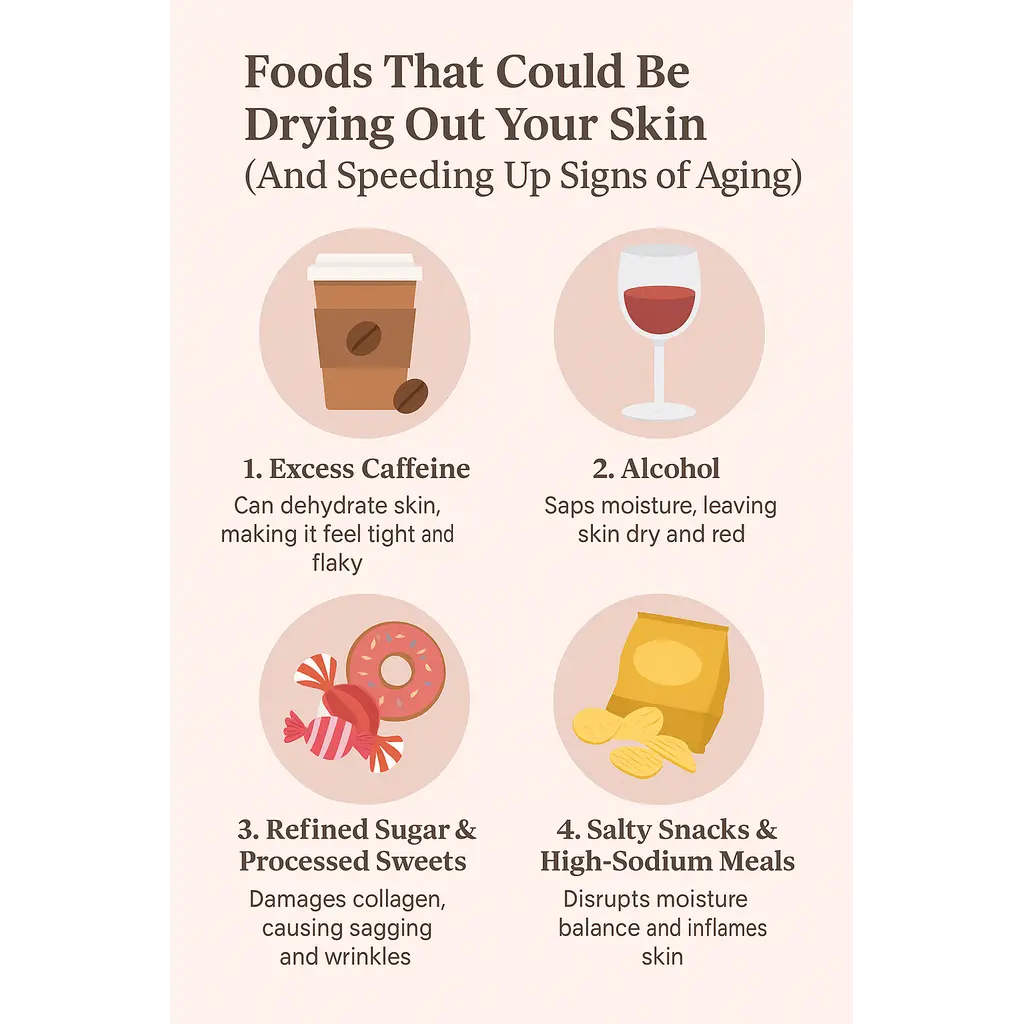
Lifestyle Habits That Help Your Skin Stay Hydrated (Beyond Diet)
We’ve covered a lot about what to eat and how certain foods can help keep your skin soft and hydrated. But let’s not forget that daily habits play a crucial role too. Even if you have the healthiest diet, your skin still needs the right care and environment to retain that moisture and maintain balance.
Here are a few simple lifestyle changes that can really enhance how your skin looks and feels, especially as it ages:
11. Prioritize Your Sleep
Your skin does some of its best work while you’re catching those Z’s. It’s during those peaceful hours that it repairs, regenerates, and rehydrates. If you’re cutting back on sleep, you’re missing out on one of the most effective ways to boost hydration and collagen renewal. Aim for 7 to 8 hours each night, and try to stick to a consistent sleep schedule.
12. Use a Humidifier in Dry Conditions
Heaters, air conditioning, and dry climates can really sap moisture from your skin — even if you’re drinking enough water. A small humidifier on your bedside table or desk can help create a more hydration-friendly environment, especially overnight when your skin is hard at work repairing itself.
13. Moisturize on Damp Skin
The best time to apply your moisturizer is right after cleansing, while your face is still a bit damp. This simple timing trick helps lock in moisture and supports your skin barrier, keeping your face feeling soft for longer. It’s a small change, but it makes a big difference.
14. Make Time for Stress Relief
This one’s easy to overlook, but it’s more important than you might think. Chronic stress can raise cortisol levels, which messes with your skin’s moisture balance. Whether it’s taking a walk, journaling, or just stepping outside for a few quiet minutes, carving out a daily moment to unwind benefits not just your mood, but your skin as well.
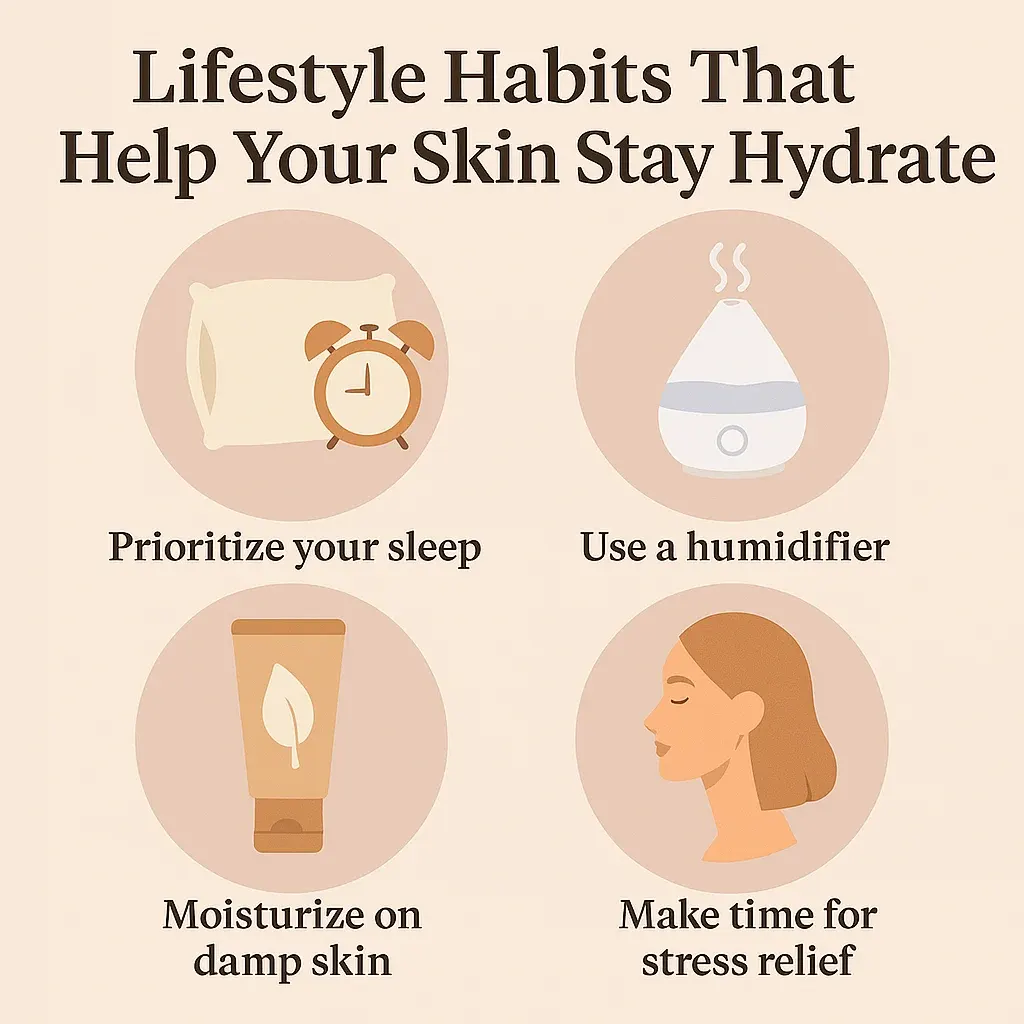
If you’ve been wondering how to hydrate mature skin beyond just products and water intake, this is your answer. It’s a mix of nourishment, rest, and mindful routines — and your skin will absolutely feel the difference.
Final Thoughts: Real Hydration Starts From Within
If you’ve been curious about how to keep mature skin hydrated for the long haul, the secret isn’t just a fancy moisturizer — it’s all about your daily habits, what you eat, and how you treat your body as a whole.
In this guide, we’ve delved into how nourishing foods, hydration-friendly routines, and thoughtful lifestyle tweaks can come together to help your skin retain moisture, stay strong, and bring back that lovely, radiant glow you truly deserve.
The reality is, there’s no one-size-fits-all miracle product. Instead, there’s a winning combination: regular care, mindful eating, and those little daily choices that nurture your skin from the inside out.

